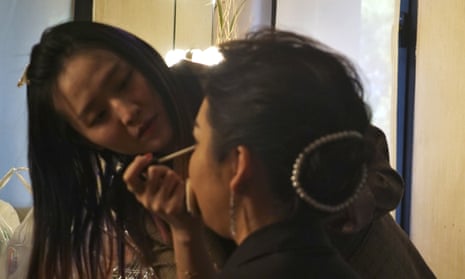Cinema needs its moments of high glamour to attract funding and sell tickets, and each May the Cannes Film Festival provides them in grand style, with plenty of diaphanous gowns, jewels and famous faces. But tomorrow morning, on the beach where much of the deal-making takes place, an appeal will be made for something it needs even more: skilled workers who can build sets or operate cameras, as well as make-up artists, lighting and sound engineers.
A third of film and TV producers are reporting a skills shortage, from plastering and location scouting to accounting, new research reveals.
At Cannes this weekend Gareth Ellis-Unwin, head of film at ScreenSkills, Britain’s industry-led training body, sounded the alarm on The Croisette. “We really do need more people to hear these opportunities are out there,” he said. “We’re not talking about the writer/producer/director roles. We’re talking about the sparks, the grips, the construction teams, the hair and costume designers – those sort of back-room jobs.”
Ellis-Unwin, who won an Oscar as producer of The King’s Speech in 2011, believes the answer to the skills deficit is to break open these trades to a wider supply of recruits. He wants a newly invigorated workforce, fed by school leavers and those with years of relevant experience, to be more representative. This means combatting forms of conventional nepotism, with the operation of what he describes as “grandfather rules”, when key skills are only passed on to family and friends.
“It is true that connections can count with a craft job, like being a grip, just as much as they do in more traditionally sought-after roles on a film set,” said Ellis-Unwin. “But we have now identified some other good access points from a variety of different career backgrounds that would suit training for this work.”
Fresh figures to be released in Cannes on Tuesday will demonstrate the scale of the issue. Once ScreenSkill’s chief executive, Seetha Kumar, has spoken on Monday in public about the need for skilled workers during a discussion panel in the British Pavilion, the body’s annual industry analysis – based on official data coupled with a survey of more than 400 employers – will reveal that 33% of the production companies asked have faced recruitment difficulties in the last year. The statistics in the new survey will also show that the number of white workers in the British film industry is higher than it is across the rest of the economy. What is more, half of the respondents are already aware that their workforce is not reflective of society.
Ellis-Unwin believes that bringing this message to Cannes, where A-list stars are paraded each May, is a crucial way to make his point. There is, after all, no “Lights, Camera, Action” without these skills.
“If there are 462 people making a film, only two are the main writer and director. There are lots of other proper jobs, but several things seem to put people off,” said Ellis-Unwin. “They think they don’t know anyone ‘on the inside’. They think they don’t live near enough to a studio and also often don’t recognise anyone in the industry as looking like them. We can’t leave it at that.”
To back up the argument a series of campaigning cinema advertisements will be released later this week, highlighting the stories of both school-leavers and of older recruits who have found satisfying work making films and television shows.
Among those making the case are a woman camera trainee from County Durham, a Sikh woman now working as an assistant director after a career teaching in prisons, and a builders’ son who has swapped construction sites for film sets.
“I am looking to move the needle for good on this,” said Ellis-Unwin, who got his own break in the movie industry by ignoring a teacher’s advice to sign up for work in a nearby chocolate biscuit factory. “There are lots of conversion opportunities from complimentary trades. Some can be beginners, but there are other skills we need from older people. You can’t quickly bake-in the kind of experience we need.”
Jesse Romain, a student producer who is in Cannes with the National Film and Television School to shadow and learn the business, said he sees an ever-growing “hunger” for those with technical training in editing, sound design and production finance. “There is certainly a demand for these skills, just as there is for new content. There is a lot of work out there at the moment and the school I go to is doing its best to meet demand, offering short courses as well as MAs, with financial support schemes available too,” he said.
The booming British film and television production sector employs more than 80,000 people, and of those 55,000 work in film and video production and almost half are freelance, according to statistics gathered by the British Film Institute three years ago. But more than 50% of that large workforce are based in London and the South East.
